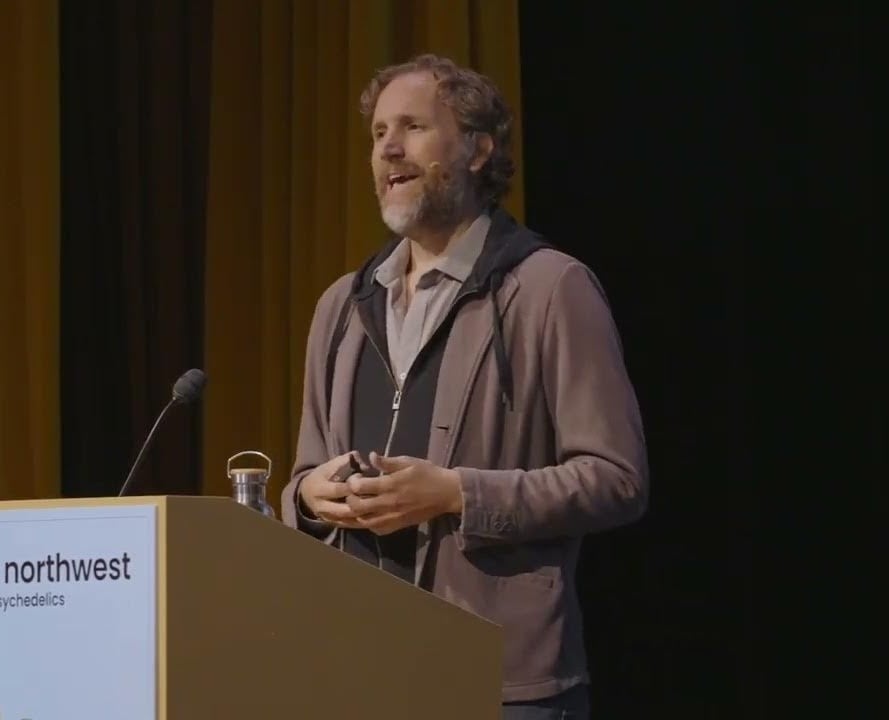With over a decade of experience building and scaling technology companies while championing initiatives that nurture healthy ecosystems and socially just, joyful communities, LIFT Economy co-founder Kevin Bayuk has encountered his fair share of B Corps. Today, he joins us to explore what it means to go “beyond B Corp certification” to deepen the movement’s impact.
Kevin operates at the intersection of ecology and economy, blending permaculture design with next-economy strategies to create organizations that meet human needs while enhancing life-sustaining systems. As an impact investment strategist for the Riverstyx Foundation, former Senior Financial Fellow at Project Drawdown, and founding partner of the Urban Permaculture Institute, he brings deep expertise to this thought-provoking conversation.
He offers candid insights on the B Corp movement, shedding light on its strengths and limitations and challenging listeners to think bigger about how businesses can drive transformative systemic change. Together, we unpack the 10 Next Economy principles of a framework for a better future, addressing the flaws in business-as-usual economic structures and exploring the importance of equitable and democratic company cultures, fostering resilience within bioregional systems, and embedding education into goods and services. In this episode, we go through the first 5 principles of Next Economy Enterprises:
- 1) Need-oriented, basic goods and services
- 2) Inclusive ownership
- 3) Equitable and democratic culture
- 4) Supports local economy ecosystem
- 5) Education embedded into the good or service
Whether you’re a B Corp enthusiast or a curious skeptic, this discussion will inspire you to rethink the role of business in creating a regenerative, equitable, and livable future!
Key Points From This Episode:
- Kevin's career-long engagement with B Corps and his early critiques of the movement.
- Structural changes necessary for a livable future for humanity and the role B Corps play.
- Insight into the difference between harm reduction and optimal beneficial impact.
- What goes into balancing profitability with maximizing positive outcomes.
- 10 principles of the framework for a better future from the Next Economy MBA program.
- A story revealing the challenges of shareholder primacy in the business-as-usual economy.
- Reasons that building an equitable and democratic company culture matters.
- Why local resilience and bioregional self-sufficiency is critical for next economy businesses.
- The value of embedding education and the "right to repair” into goods or services.
- How envisioning a business becoming obsolete challenges it to innovate.
- Addressing the price parity paradox through inspiration, partnership, and more.
- Your invitation to join the inaugural cohort of the Next Economy Living Workshop.
Quotations
“Harm reduction? Yes. A step forward? Yes. – The B Corp movement seemed to us to be essential but wholly inadequate for the transformation that’s necessary [for] a livable future for humanity.” — @kevinbayuk
“Need-oriented basic goods and services – [is] the first discerning lens that orients a company from the question of ‘How can I make money?’ versus ‘How can I solve a problem for my community?’” — @kevinbayuk
“We don’t necessarily need pitchforks for revolution if the structure of economic entities – takes any surplus generated and puts [it] back in the hands of labor and/or the community or multiple parties rather than concentrating that wealth into shareholders or founders.” — @kevinbayuk
“Take anything that has documented environmental or social harms that you and I might consider – immoral, the [business-as-usual economic] system is insulated or has an immune system to almost force immoral decisions.” — @kevinbayuk
“Building back local reliance and local bioregional resilience is a critical characteristic for a business to orient around.” — @kevinbayuk
“[A better future entails] the transfer of power from a dependent consumer culture to a voluntary, interdependent producer culture where people – [can] take on the meeting of more of their own needs from their own effort.” — @kevinbayuk
Links Mentioned in Today’s Episode:
- Kevin Bayuk on LinkedIn: https://www.linkedin.com/in/kevinbayuk/
- Kevin Bayuk on X: https://x.com/kevinbayuk
- Riverstyx Foundation: https://www.riverstyxfoundation.org/
- Project Drawdown: https://drawdown.org/
- Urban Permaculture Institute: https://www.upisf.com/
- B Impact Assessment: https://www.bcorporation.net/programs-and-tools/b-impact-assessment/
- Next Economy MBA: https://go.lifteconomy.com/nextmba
- The Next Economy MBA: Redesigning Business for the Benefit of All Life: https://bookshop.org/p/books/the-next-economy-mba-redesigning-business-for-the-benefit-of-all-life/18948897
- Next Economy Living Workshop: https://go.lifteconomy.com/next-economy-living
- Inequality.org: https://inequality.org/
- Reinventing Organizations: https://www.reinventingorganizations.com/
We Want to Hear from You
We want to hear from you! Email us at beyond@lifteconomy.com with requests for content, suggestions for future guests, and feedback about our episodes.
B Corp Consultant
Interested in certifying, recertifying, or maximizing the value of your B Corp certification? Learn more about our B Corp consulting services at LIFT Economy.
Help Us Grow the Show!
We are trying to grow our audience and wanted to ask you a huge favor.
Try to think of one person that might like this show. Then, pull out your phone, and text them something like:
Hey, I think you might like this new podcast Beyond the B. Check it out at lifteconomy.com/beyond. You can subscribe wherever you get your podcasts!
Seriously! Take out your phone and try it right now! Then, follow up with them to see how they liked it.
This would be super helpful for us. We deeply appreciate your support. 😊
Gratitude:
Thank you to Corey Lien and Nozomii Torii for being our monthly contributors at Beyond the B!






